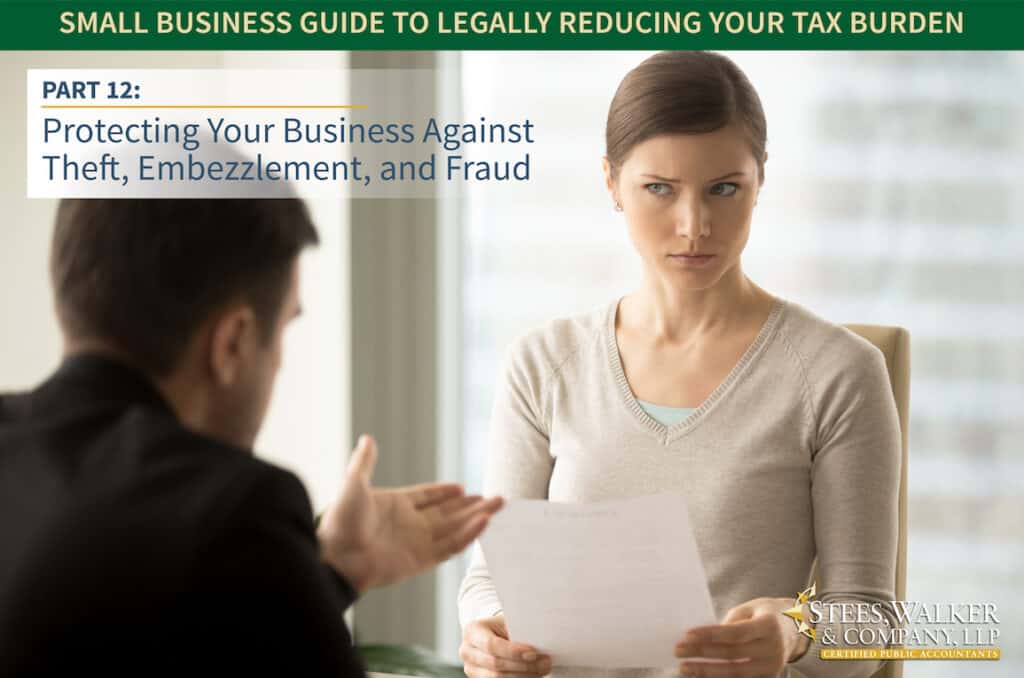Protecting Your Business Against Theft, Embezzlement, and Fraud, Part 12: Small Business Guide to Reducing Your Tax Burden Legally
Editor’s note: Welcome to the final installment of our 12-part series — “Small Business Guide to Reducing Your Tax Burden Legally.” Admittedly, this final installment is technically outside the scope of this series in that it has little to do with saving money on taxes. However, it does have a lot to do with keeping more of the money you earn as a small-business owner.
Another difference is that we recruited a contributor to write this post — Jen Rodriguez, a Southern California-based forensic accountant with a Master of Accountancy and more than 20 years’ experience in accounting, operations, and data management. Rodriguez is also a graduate of Florida Atlantic University’s Forensic Accounting, Digital Forensics, and Data Analytics master’s program.
Protecting Your Business Against Theft, Embezzlement, and Fraud
By Jen Rodriguez, MAcc
Today’s headlines are filled with stories about small-business fraud, but a vast majority of these stories are about small-businesses committing fraud against the government. Most recently, the news media have focused on fraud involving the Paycheck Protection Program (PPP) — the federal government program designed to keep small businesses solvent during the coronavirus pandemic. The PPP provided ample opportunity for con artists and dishonest small-business owners to defraud the government — and you, the taxpayers — of millions of dollars.
What you hear much less about are the far more common crimes against small businesses, many of which are committed by trusted employees. These crimes include the following:
- Theft: Stealing money or property from the business outright.
- Embezzlement: Diverting money or property from the business for the employee’s own personal use.
- Fraud: Tricking a business into “voluntarily” giving away money or property.
These crimes cut into the profits of any business, but they can be especially devastating to small businesses, and are more difficult and costly for those small businesses to protect against and recover from. In this post, I look at the high costs of these workplace crimes (often referred to as occupational fraud); suggest ways that small businesses can protect against, detect, and recover from these crimes; and highlight the importance of retaining professional services when necessary.
Recognizing the High Costs of Theft, Embezzlement, and Fraud
The U.S. economy is built on the backs of small-business owners, who collectively account for $8.5 trillion dollars of the country’s $17 trillion Gross Domestic Product (GDP). Unfortunately, as we all know, money attracts thieves, and small businesses are often the easiest targets.
Criminal schemes targeting small businesses rarely attract public attention and often go undetected for many years. That’s no surprise given the fact that crimes targeting small businesses are often inside jobs committed by trusted employees. In fact, employees are stealing more than employers are aware. Recent statistics on employee theft reports that 75 percent of employees have admitted to stealing from their employer once, and 37.5 percent have stolen twice.
To protect their businesses and their own financial health, small business owners must Continue reading…


